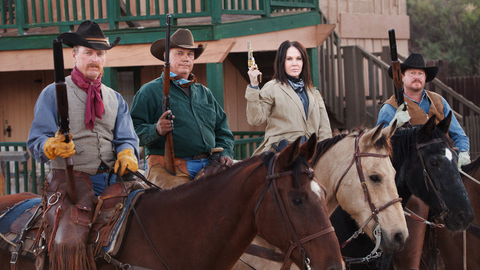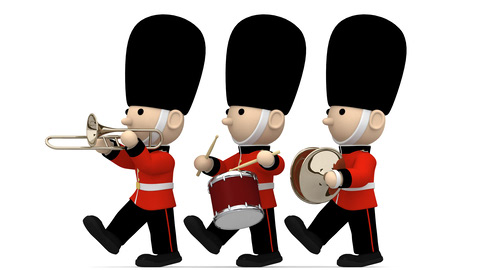In other memoirs I mention how I hate the spotlight and in class, sat in the very back row when the teacher would let me. I’d “dumb down on tests, trying not to get about a C grade. Things didn’t always go my way.
Despite my efforts or lack of effort, I was assigned to Mr. Connor’s advanced English class. He did let me sit in the back, and I rarely raised my hand. At the beginning of the year Conner passed out a list of book titles. He said nearly half our grade would be based on a book report on a title from his list. He said the review would be near the end of the year. He was giving us time to read and as he claimed, think.’ The books were all classic novels and quite long. He told us he’d give us written instructions later in the year, but not to wait and start reading now. He said he had one option. You could opt to do an oral report. He said few people selected that option and in all his years of teaching, the best oral report grade he had ever given was a B.
There were murmurs and hushed conversations about the assignment. I put it out of my mind. I had always been an avid reader but kept that information private in case it would hurt my goal to stay at a C.
The year went fast. I enjoyed English and had be careful and not actively participate. When book review time came, I didn’t do anything. That day Mr. Conner collected student book reports and stood at my desk with his hand, palm up and open. “Your report, Mr. Blumer”
“I’m opting for the oral report,” I said. I knew that would practically guarantee no A. That was a relief.
“Big mistake, Mr. Blumer,” Conner said. He took back his hand and moved to the next student.
It was at the end of the week. English was my last class of the day, and the dismissal bell had just rung. Students bunched up at the door as they headed into the hall. “Blumer,” Conner said. “You stay. It’s book report time. I’m guessing it won’t take too long.”
As the room emptied, Mr. Conner erased his chalkboard, then cleared his desktop. He moved a chair, putting it facing his. He gestured to it and said, “Sit.”
“Which book did you pick?” he asked.
“I don’t have a special one picked,” I said. “You can pick one. I don’t care which.”
“My list has ten books,” he said, giving me a questioning look. “Are you claiming you read them all in the last six months?”
“No,” I said. “I mean I’ve read all of them. Just not recently.”
“When?” he asked.
“Oh, some when I was in third or second grade. Most by the time I was maybe ten. I didn’t keep track.”
“Do you want me to just fail you on the spot? I’m not believing what you’re telling me.”
“I shrugged. Um… do you want to pick one?”
“Okay,” he said. Mr. Conner picked up his list and adjusted his glasses on the end of his nose. He scanned up and down his list. When he put it down, he said, “All Quiet on The Western Front.” With folded arms he stared at me.
“What do you want to know?”
We ended up just talking about the book. I told him about my feelings as I read about the soldiers in first world war. I told Conner I wasn’t good at remembering names. I couldn’t remember the name of the German author, but I thought it was Werner or Weener or something like that that did the English translation. We talked about Steinbeck, my favorite author. He was Connor’s favorite too. We both lost time and talked for about an hour until an after-class activities bell rang.
We both stood. Connor squinted a bit before he spoke again. “I had my doubts about you, Blumer. I wasn’t going to take you in my class, but your teacher from last year convinced me to. She said you’d surprise me.” He slowly rocked his head back and forth.” You’re full of surprises. I hope you didn’t miss your bus.”
“I walk,” I said and left.
A couple of days later, Connor walked down the rows of students and handed out book report grades. When he finished, he stood, leaning against his desk. “Class, I have an announcement to make. Only one of you had the courage to do an oral report. Some of you might have who, buy who didn’t get a paper handed to them. For the very first time, I gave not only an A but an A+ to a student. Mr. Blumer, will you please stand.”
I gave him a panicked look and shook my head, ‘No.’
“Okay,” he said. “I understand, but let’s give him a round of applause.”
I slid down in my desk. My face burned.
Just Statues, No Dogs or Cats
Math was a class I liked. At home, I’d make up problems to solve just for fun. I still provided wrong answers on tests to keep at a C. But first I’d work out the correct answer, so I didn’t fill in a correct multiple-choice answer by mistake. One mistake I made was getting too excited about solving a riddle. We were studying logic, which I loved. Logic is just a form of math. You can express the classic logic statement as a formula. Dogs are animals. Cats are animals. Therefore, all cats are dogs.’ Dogs = A. Cats = B. Animals = C. If A = C and B = C, A does Not = B. See? Easy.
My math teacher told up a riddle. He said he’d give us a week to work on it. Anyone who could solve it would get extra credit. That evening at home, the riddle took me about 5 minutes to solve. Here’s the riddle.
In a small country, the king wanted a husband for his daughter. He put three magic statues in the castle courtyard. One statue would always tell the truth. One statue would always tell the lie. One statue would sometime lie and sometimes tell the truth. Young men came as suitors for the king’s daughter. The suitor could pose just one question to one statue only. From the answer the man must guess which statue was which. If he were correct, he won the daughter’s hand in marriage and received the kingdom as a prize.
The next day, my math teacher was shocked. I had the correct answer. To check me, I had to explain to the class how I had solved it. I won’t give you the answer here, but here’s a clue. Approach the first statue. Ask the figure who sits beside it. Only one combination will work. The statue answers, “The one who always lies.”











